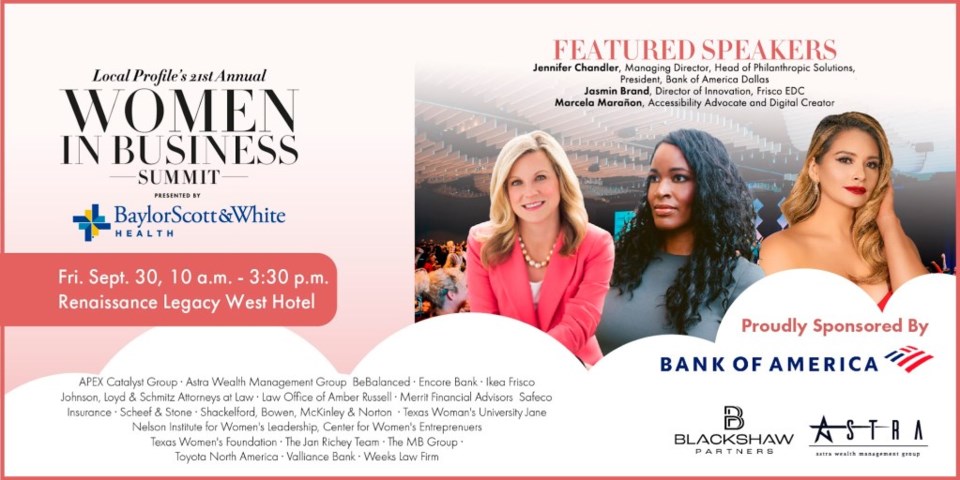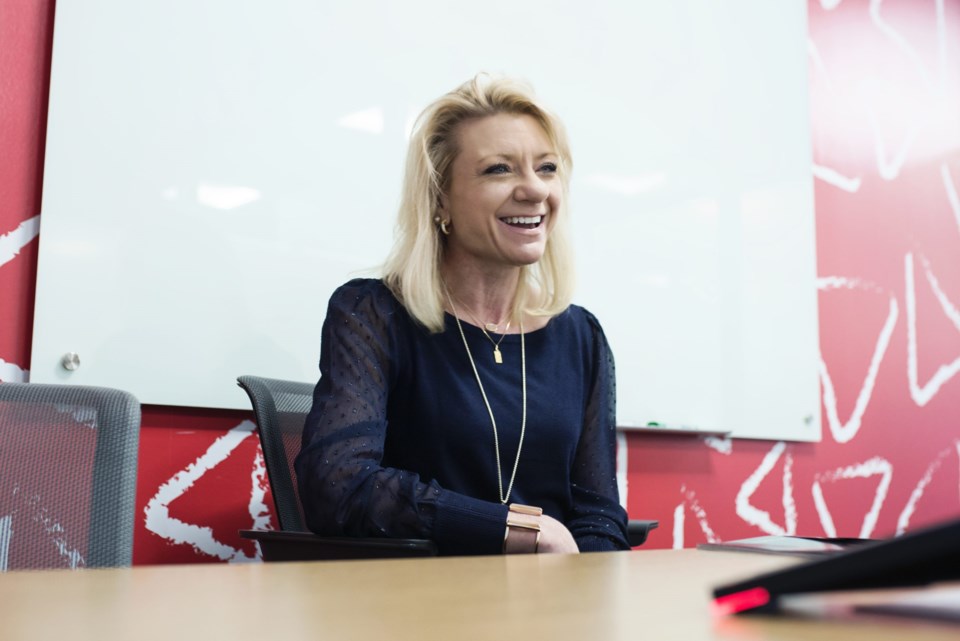Laura Maxwell is the senior vice president of supply chain at PepsiCo Foods North America. In this role, she’s responsible for an array of logistics, including field manufacturing, warehouse, transport and in-market operations, with an eye on not only commercial growth but also quality, safety and sustainability. Maxwell spoke at the 2019 Women in Business Summit.

How has the business world changed since the start of your career?
The business world and supply chain have changed drastically since I began my career. If I think back to when I started in this field, supply chain was more of a “back of the room” function — not really a core part of the business discussion. Fast forward to today and supply chain is an integral part of what we do. While the last two years certainly brought challenges or they very clearly brought to the forefront of the conversation the critical nature of those that procure, make, and move in order to fulfill consumer needs.
One other area that has come to the forefront of all that we do is sustainability. We have done things for years like celebrating Earth Day and focusing on recycling and conservation. But today, companies are putting focus on a sustainability mission. At Frito-Lay North America, it is really exciting to see the progress we have made in sustainable practices, such as installing membrane reactors into our plants to help conserve water or putting solar fields at manufacturing plants, and decarbonizing our fleet by implementing the use of electric vehicles.
How have you changed?
I have changed a lot over the years and most of that change came in the form of learning! Here is a key lesson: I pride myself on being a collaborative leader but I have realized sometimes what teams really need are quick decisions. Over the years I have learned to be decisive when needed. I recall someone once coming into my office and saying, “I like coming in here because we get stuff done.” That was not only a compliment but feedback as to the importance of being a decision maker. Highly collaborative leaders should recognize that difference. Doing so has helped me to evolve along the way.
What obstacles did you face?
An interesting fun fact about the timing of my current role (running the North American Foods Supply chain) is that I began the role one week before our headquarters teams started working remotely and social distancing and quarantines became a reality. I realized immediately that, a role I had been watching for years, was going to have to be done differently. Where I had initially planned on traveling to our factories and distribution centers to see the operations, talk to people, and learn what help was needed, I was now pivoting to fully operating via zoom and phone. During the first year, my role became primarily one of listening and supporting the removal of obstacles. As an example, I remember spending a lot of time exploring new technologies that enabled communicating on the factory floor while allowing social distancing. Listening and acting with speed was the definition of success. Fast forward to today and we are definitely in a more stable place. The obstacles of that year were a critical part of the learning curve as a leader!
Did any of the obstacles surprise you?
Over the years I have spoken to many groups — from high school STEM week talks to college clubs to professional organizations. Whenever possible I will stay after the presentation and take questions.
One of the most common questions I get from women of all ages is how I managed being a mom while growing in a supply chain career. I’m constantly reminded how young women are thinking about balancing family and work — sometimes questioning if they can do both. I am a mom, and now that my daughters are in their twenties, I have spent a lot of time talking to them about their memories of my years running a factory or roles where I traveled. Clearly, not every situation is the same, but today they talk about how my experiences have helped them believe that anything is possible. When they were young, I talked a lot about how I loved my job, I made sure we had Cheetos and Tostitos in the pantry so they could “see” what mom did for a living! I never apologized for being a working mom but instead tried to celebrate it.
What experiences, training or education best prepared you?
With regard to leading a supply chain, the greatest education I received was experience. This came in the form of working in our field locations for the first 18 years of my career. I started as a plant engineer and worked in locations in Iowa, Kansas and Texas. My last field role was running one of our large plants in California. As part of my role today leading supply chain for Frito-Lay North America, I am responsible for the amazing field teams that work in our plants, warehouses, and distribution centers as well as those that drive our fleet of over-the-road trucks. I continually draw from my own experiences in the field and the lessons I learned from working with those teams.
What do you wish you had known earlier?
Several years ago, for the first time in my life, I started to work out on a regular basis. Prior to that, I avoided gyms and was proud to call myself a “mathlete” vs. an athlete. Fast forward to today, I work out daily and really push myself physically. I always have goals in front of me to achieve. The connection between physical fitness and mental wellness is now so clear to me. I am also a better leader due to pushing myself. My workout of choice is boxing. I’ve pushed myself to participate in competitions, which has led to a clear connection between risk-taking as a leader in and outside of work.
What advice would you give to others?
Now that my daughters are in professional careers, I listen to them a lot and try to see the world through their eyes. Watching them reminds me that balance and having interests outside of work are critical at any stage in a career, though it can be counterintuitive at times. I reflect on times during my career when I felt like throwing myself completely into work would translate into reaching the highest level of effectiveness. I have since learned that achieving “home and family” goals was just as important as the time I spent on work goals. That peace of mind made me more effective at work.
Don’t get me wrong, I was far from perfect, but on reflection, I can now correlate work success directly with times I had balance with family and outside hobbies.
What do you think the future holds for women in the business world?
With the onset of the COVID-19 pandemic, many of the challenges women and women of color face increased. The idea of “doing it all” is still one of those challenges. There are a number of ways we can overcome that. I am a huge advocate of mentors, sponsors and support programs; however, the bottom line is that increasing the number of women in leadership roles is the number one thing we can do to support women in business. In fact, creating higher levels of diversity in all areas is the single biggest thing we can do to ensure that people on their way up or choosing careers see that the potential is there for them to be successful.
Do you have any memories of Women in Business?
My experience as a keynote for the Women in Business Summit was one I absolutely treasure. Getting to know Rebecca, Philip and the staff was terrific. The event was truly my most treasured time on a stage.
I had never really told “my story,” and the audience was so supportive. It was awesome to look into the audience and see that there was also a significant number of men who attended the event.
What is the biggest mistake you see women making when it comes to advancing their careers?
There are several studies that show how women will often gravitate towards roles that work to their strengths — which of course is totally normal! One size never fits all, but women tend to be known for our organization, facilitation, project management and collaboration skills, all of which are at the core of great roles. I often encourage women to take on roles that have direct business impact, have P&L ownership or that manage large teams — essentially roles that run “right up the middle” in terms of impact. So often, we underestimate our strengths, and there is a seat at the C-Suite table for women.
We are often far more capable than we give ourselves credit for, so I always encourage women to go for it!
What’s your personal brand and how do you nurture it?
When I think about a personal brand, I think of what I want to be known for — how would people describe me if I weren’t around. One of the most rewarding parts of my roles over the years has been building and evolving talent. I’ve enjoyed seeing people take a new role and just knock it out of the park, pulling someone up in the organization faster than they expect and watching them succeed. Related to that — my personal mission in many ways is encouraging people to take the road less traveled. In the early years of my career as a female engineer, I often found myself as the “only” or “one of the few” and I personally know the role that your own head can play in wondering if you really belong. Advocates are needed to ensure that leaders don’t allow the fact that they don’t “see themselves” represented allow that to be a reason they don’t go for it!
Local Profile‘s 21st annual Women in Business Summit will be held on September 30 at the Renaissance Dallas at Plano Legacy West Hotel. Click here for tickets.




